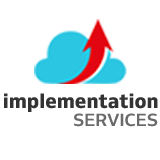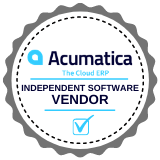Are you making these ERP Implementation mistakes?
If you are reading this, chances are you must have gone through the first part as well and if not, click here for Part 1.
In the following series, we are going to continue with another list of commonly made ERP implementation mistakes that leads to failure and subsequent loss to the business.
So, if you are planning to invest in an ERP solution, make sure you have thought it through, have a well-planned strategy, and are ready for the change that the ERP system will bring in your organization’s workflow. Because as mentioned in the earlier post, if not executed right, it can turn out disastrous for your business.
-
Training too late
You need to be prepared well in advance for ERP implementation to ensure that it is a success. And this is only possible when you understand transactions along with the implementor. This will empower your business is able to yield the benefits of the collaborated data migration and implementation. You will find yourself in a challenging position with what’s and whys if you try to understand or train your employees late in the process.
-
Communication Gap
We know ERP helps streamline and simplifies all the processes across an organization. Therefore, even a minor communication gap in terms of implementation can prove detrimental to the business and not give the desired output. Before you begin with the implementation, make sure that there is a well-structured communication plan. Your plan should allow and promote keeping everyone across the department on the same page about sharing any information or how are you to take the business ahead.
-
Not designing a resolution strategy
We know ERP implementation is a complicated task. Hence there is a high possibility of error or hitting a roadblock. Therefore, it is important to have a resolution strategy in advance if things go haywire. Note down all the plausible issues you might face in the onboarding process. Accordingly, create a resolution plan for the same. This will smoothen the implementation process.
-
Not conducting testing
Testing is important to see if the system is performing in accordance with what you had planned. But keep in mind to not just run some generic test. You should create a simulation and see the results in real-time. This will help you identify any issues in the system and fix them at once, ensuring implementation success.
-
Going by one size fits all approach
One size fits all approach has never worked and will never work, especially in ERP implementation. Depending upon the industry you serve, you need to customize your ERP implementation strategies for the business need and scalability. But while customization can help you achieve your business goal, it is important to note that over customization can escalate the scope of the projects, leading to loss of operational cost.
ERP can be challenging and with underqualified people trying to navigate their way about it, it may be the cause of loss of revenue to the business. Therefore, it is important for businesses, big or small to consult seasoned ERP pro. We at Tayana Solutions have ERP experts who come backed with the knowledge, experience, and ability to efficiently implement ERP systems. We make sure that you are able to leverage its features without any hassle. With us, you will be working with matured and experienced ERP experts who will ensure will increased efficiency and better productivity.
Reach out to our ERP experts for more information!

Vijay comes with a vast experience in ERP and enterprise solutions space with about 20 years of experience in various packaged application like Acumatica, SAP, Orion, Salesforce.com, SugarCRM and, SalesLogix.
















